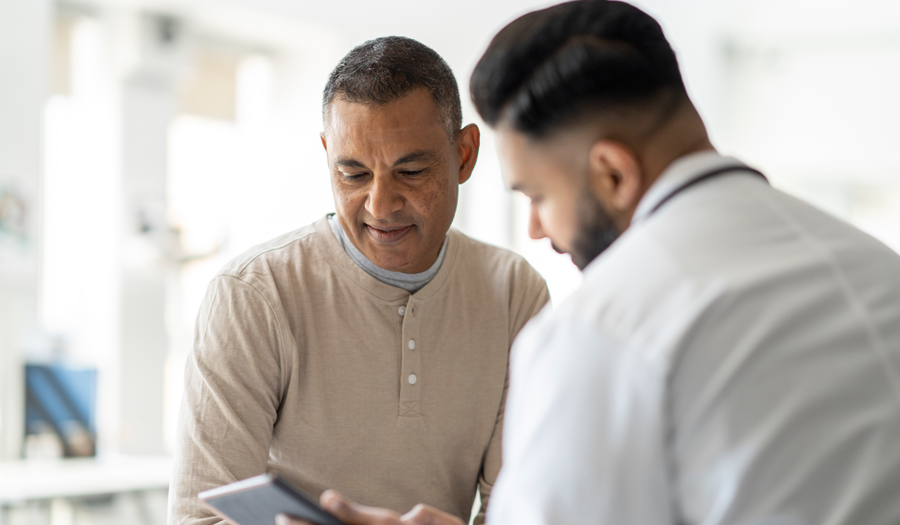
Written by: Vanessa Jerusalimiec (*Amsive Digital) | Reviewed by: Kristin Van Dusen | *MHP partners with Amsive Digital on news content
The Importance of Having a PCP
Staying healthy is easier with help. A Primary Care Physician (PCP) can offer you support and guidance no matter what life throws your way.
Why Do I Need a Primary Care Physician?
PCPsrimary Care Physicians see people of all ages with any health concern. These doctors treat common health concerns like headaches, infections, or pain. They also help you manage ongoing conditions like heart disease, high blood pressure, or diabetes. PCPsrimary Care Physicians can make a diagnosis, prescribe medications, or refer you to a specialist.
A PCP is your guide through the complex world of health care. They’re your main point of contact whenever you need medical care. Whether you’re due for a routine check-up or you’re facing a health concern, your PCP can help.
PCPs take the time to get to know you and your concerns. When they recommend a treatment plan, you can be confident knowing they’ve considered your health history and your treatment preferences. Your PCP also provides reliable support and gives you the resources you need to live a healthier life.
What Are the Benefits of Having a PCP?
Having a PCP is important at all ages of life. Studies show that adults with a primary doctor have better health outcomes. If you have a PCP, you’re more likely to go for a routine checkup every year. You’re also more likely to fill prescriptions, take medications as directed, and get regular screenings.
Monitor your Health
Your PCP monitors your health. Your primary doctor can help you when you’re sick, but they he or she can also help you stay healthy. They’ll remind you about annual checkups and suggest routine screenings for high blood pressure, diabetes, and cancer. Often early interventions lead to better treatment outcomes, so those routines tests have a major impact.
Manage A Chronic Illness
If you’re managing a chronic illness such as arthritis, diabetes, or heart disease, you don’t want to go it alone. Your PCP works closely with you every step of the way, helping you lead a healthy and happy life while managing a chronic illness.
Get Referrals to Specialists
Depending on your health care plan, you may need a referral to access a specialist. Your PCP works with a wide range of specialists and can recommend a specialist that best matches your needs.
Be Prepared for an Emergency
Medical emergencies happen. But if you have a PCPprimary physician, you’ll be prepared for any health crisis. Your PCP knows your health care needs, and he or she will they’ll make sure you access the right care in an emergency.
How Do I Find a Primary Care Physician?
Finding a PCP is easy. Our physician directory lets you search for PCPs in your network. Start by selecting your health plan. Then search the provider directory by selecting Primary Medical Provider from the drop-down menu and entering your ZIPip cCode. You can also use this tool to find in-network specialists, hospitals, and even pharmacies.
MDwise customer support is available from 8 a.m. to 8 p.m., Monday through Friday at 1-800-356-1204. If you’re looking for a primary physician, give us a call and we’ll help you connect with a PCP in your area. Here’s how to contact us:
MDwise Medicare Member Services
Toll-free 833-358-2140 (TTY: 711)
Oct. 1-March 31: Seven days a week, 8 a.m. to 8 p.m. (except Thanksgiving and Christmas days)
April 1-Sept. 30: Monday through Friday, 8 a.m. to 8 p.m.